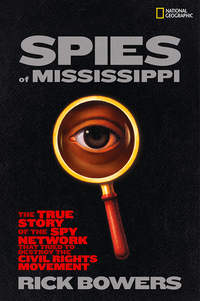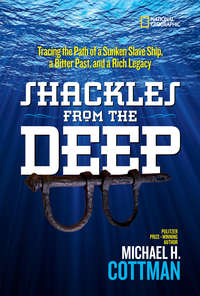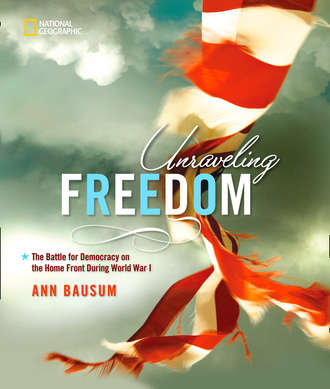
Полная версия
Unraveling Freedom: The Battle for Democracy on the Homefront During World War I
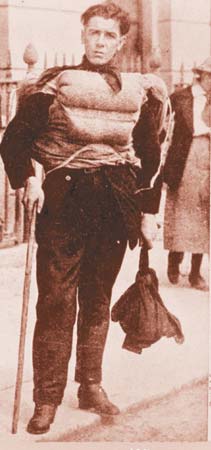
Some reflexively refused to give up their life jackets. Sorting the living from the dead could be challenging. “Good gracious, are you alive?” asked a startled rescuer after a bellboy from the ship sat up amongst a pile of corpses.
George Hook and his adolescent son and daughter had jumped from the Lusitania’s decks, but had become separated. Father and daughter feared the boy dead even as the son assumed he’d lost them; they were reunited in a Queenstown hospital. The Morton brothers, Lusitania deckhands, presumed each other lost until they coincidentally inspected opposite ends of the same dead body in a makeshift mortuary. Avis Dolphin, a 12-year-old Canadian on her way to school in England, credited her survival to a friendly Scottish professor who had personally tied on her life jacket, an act that became crucial after her lifeboat capsized and dumped her into the water. When last seen by Professor Ian Holbourn, Avis was being sucked underwater in the Lusitania’s wake. She surfaced soon after, and the friends met again in Queenstown.
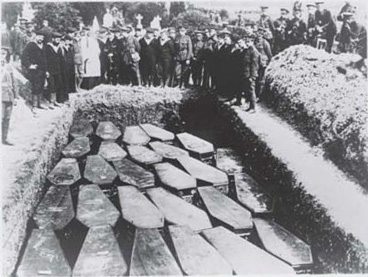
Remembering the dead. Nearly 150 bodies recovered from the Lusitania could not be identified. They were buried in one of three mass graves on the outskirts of Queenstown. Coffins were in short supply locally; more had to be shipped in from other cities.The bodies of Americans were returned to the United States unless relatives requested that they be buried in Ireland.
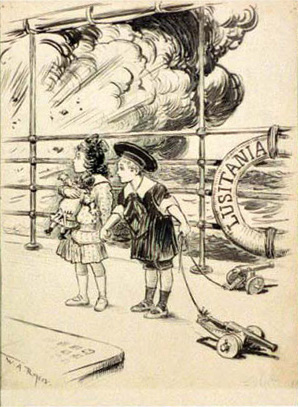
Artists drew countless cartoons about the attack on the Lusitania. Many emphasized the innocence of the youngest victims and the ship’s poor defenses, no better than toy cannons.
The mounting collection of bodies—stacked at first like cordwood and then laid out in makeshift morgues—made the day’s losses very real and very horrifying. Corpses with missing limbs and disfigured faces revealed the brutality of the final moments of life and the natural ravages of even a few hours spent in the ocean. Seagulls pecked out eyes. Scavenging fish ate away limbs. Torsos turned up without heads. Intact bodies became bloated with seawater. As gruesome as the task was of identifying the dead—and some bodies could not be identified at all—the presence of a corpse brought closure to surviving family members. The absence of a body left friends and loved ones on edge, hoping for a miraculous recovery of someone at an isolated point on the Irish coast or among those unidentified survivors housed at area hotels and hospitals.
Among the missing were Alfred Vanderbilt, observed by many in the act of helping others during the Lusitania’s final chaotic minutes above the surface. Charlotte Pye attested that Vanderbilt had taken off his own life jacket and placed it on her before helping her enter a lifeboat with her infant daughter. The millionaire’s body was never recovered.
Neither were the bodies of most of the dead. Even though corpses washed ashore in the weeks after the sinking, some 900 people remained missing and were never seen again. Still-fresh memories from the accidental sinking of the Titanic three years earlier may have made reports of the Lusitania’s destruction that much more grim and vivid. About two-thirds of the 1,962 individuals who sailed on the Lusitania’s final voyage perished, including 785 passengers and 413 crew members. Just 35 out of 129 children survived; nearly all infants perished. A total of 128 Americans lost their lives.
News of the catastrophe spread rapidly by way of telegraphed messages and phone calls. Soon banner headlines on both continents began to convey the horrors experienced by survivors, the extensive loss of life, and the almost immediate destruction of what had been considered, like the Titanic, to be an unsinkable ship. It did not take long for the tragedy to be transformed into a battle cry that would help inflame and expand the European conflict into the First World War. That cry echoed from shore to shore. It was passed along through newspapers, plastered onto military recruitment posters, and evoked with passion from the halls of the British Parliament to the chambers of the United States Capitol. And it rang from the voices of Allied soldiers as they charged across European battlefields. The voices rose and swelled into an enduring chorus: “Remember the Lusitania!”
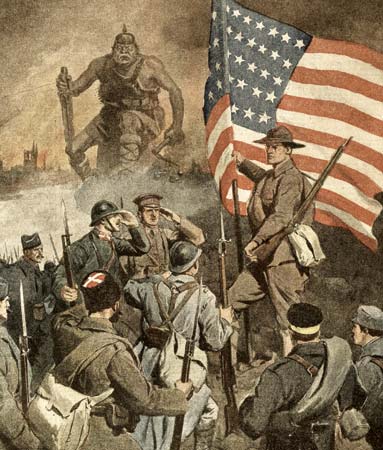
War work. Few experiences in Woodrow Wilson’s life prepared him to be a wartime Commander in Chief while President of the United States. He had rarely traveled, never served in the armed forces, and barely studied military history.
2
“We must throw the influence of this nation in behalf of a plan…. This is the part I think you are destined to play in this world tragedy, and it is the noblest part that has ever come to a son of man.”
EDWARD M. HOUSE, ADVISING WOODROW WILSON TO TAKE AMERICA TO WAR, 1915
A CALL TO ARMS
BEFORE MAY 7, 1915, few people really believed that German subs could catch and attack the mighty Lusitania, or that German officers would dare to fire at the passenger ship without warning, or that the vessel could be destroyed so completely and rapidly. Such concepts were unthinkable, beyond imagination, in much the same way that few people anticipated the calculated and catastrophic terrorist attacks of September 11, 2001, on New York City’s World Trade Center and other U.S. sites. The sinking of the Lusitania was the 9-11 of its time, and, like 9-11, it served as a backdrop as the United States moved toward war. Perhaps the most remarkable difference in the case of the Lusitania is that so much time passed between calamity and combat.
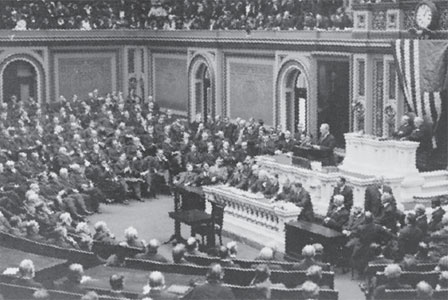
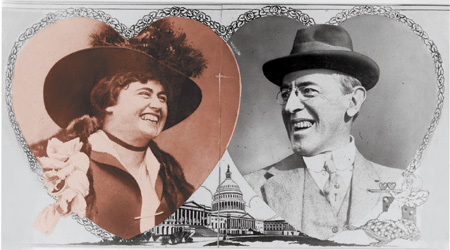
Wilson speaks out. Woodrow Wilson was the first U.S. President since John Adams to formally address Congress. He made repeated speeches there during his Presidency, including his 1917 appeal for war. Wilson wrote his own speeches, often typing them himself on his portable typewriter. He proposed to his future second wife, Edith Bolling Galt (far right), just days before the Lusitania’s sinking. His first wife had died the same month that war broke out in Europe.
“The day has come when America is privileged to spend her blood and her might for the principles that gave her birth and happiness…. God helping her, she can do no other.”
WOODROW WILSON, CONCLUDING REMARKS FROM HIS WAR MESSAGE TO CONGRESS, APRIL 2, 1917
Finally, on the evening of April 2, 1917, legislators filled the chairs of the House of Representatives and guests packed the seats of its balcony to hear Woodrow Wilson call the nation to take up arms. The President’s call came nearly two years after the loss of the Lusitania because Germany had begun to violate safe passage agreements that had followed the 1915 sinking. Among those attending was the Democratic President’s new wife, Edith, whom he had married just 16 months earlier. Others present included two senators who did not support the move toward war, Wisconsin Senator Robert La Follette and James Vardaman from Mississippi; unlike their colleagues, neither man wore American flag pins on their jacket lapels. Massachusetts Senator Henry Cabot Lodge, a staunch advocate for war, did. Regardless of political opinion, expectations ran high that the President—who prided himself on his public speaking ability—would deliver a stirring address. He did not disappoint.
“The present submarine warfare against commerce is a warfare against mankind,” Wilson asserted. “I advise that the Congress declare the recent course of the Imperial German Government to be in fact nothing less than war against the Government and the people of the United States.”
Wilson presented the coming conflict in lofty and noble terms. “We are glad…to fight thus for the ultimate peace of the world and for the liberation of its peoples,” he proclaimed. The United States should fight “for the rights of nations great and small and the privilege of men everywhere to choose their way of life and of obedience. The world must be made safe for democracy…. We shall be satisfied when [the rights of mankind] have been made as secure as the faith and the freedom of nations can make them.”
The audience rose in a standing ovation as Wilson concluded his speech. Robert Lansing, Wilson's second Secretary of State, described the President’s performance. “From the moment that he entered the auditorium up to the time that he passed out into the corridors of the Capitol he was master of the situation,” he observed. “His control of language and of his audience was a marvelous exhibition of his genius as an orator.”
Even former President Theodore Roosevelt, a fierce political opponent of Wilson’s, visited the White House within days of the speech and told Wilson that his words might “rank…with the great state papers of Washington and Lincoln.” A columnist for the New York Times commented that “the sole defect of this great and noble message is its date.” The writer, like Roosevelt, regretted that Wilson’s call for war had not “swiftly followed the crime of the Lusitania.”
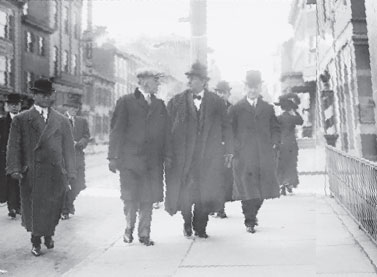
Presidential contenders. William Jennings Bryan (wearing bow tie, talking with Woodrow Wilson in cap) was a Wilson supporter and former presidential candidate who earned the coveted post of Secretary of State following Wilson’s election in 1912.That election left Democrats in charge of both houses of Congress and the Presidency.
In fact Wilson had carefully avoided combat after the Lusitania went down. He tried instead to be a peacemaker for Europe and sought to bring harmony and democracy to the world’s citizens. Thus for two years he employed diplomacy and his powers of persuasion to avoid war. For a while he succeeded. Although Germans briefly celebrated the Lusitania’s sinking, the subsequent condemnation of the act as barbaric and criminal forced the Kaiser to scale back his submarine campaign. In the months that followed, Wilson scolded Germany when it occasionally attacked American-related shipping, and Germany responded by once again avoiding American targets. Even as people like Roosevelt urged for military combat to replace verbal combat, plenty of Americans remained reluctant to shed blood for what was essentially seen as a fight between old-world rivals. These citizens helped reelect Wilson in 1916 with the campaign slogan, “He kept us out of war.”
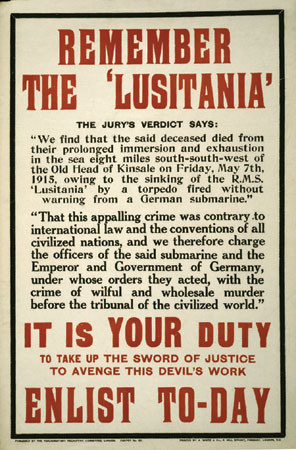
Posters on both sides of the Atlantic (from Great Britain) urged citizens to support the war effort in memory of victims of the Lusitania.

In early 1915 House had actually sailed to England on the Lusitania to serve there as an informal representative of the President. On the day that U-boat 20 sank the Lusitania, he had predicted at an English dinner party: “We shall be at war with Germany within a month.” Although his prediction failed then, House would forecast or promote the idea repeatedly in the months that followed, even as Wilson steadfastly resisted it.
By 1917, though, the President was running out of diplomatic tricks, and Germany’s military strategists were despairing on the battlefront. In an effort to regain the chance for victory, the Kaiser declared all-out war on the high seas, regardless of international opinion. German officials gambled that their forces would be able to cripple the Allies’ supply lines and defeat their foes before America could declare war, raise an army, train it, and send it into battle. His decision forced Wilson’s call to arms.

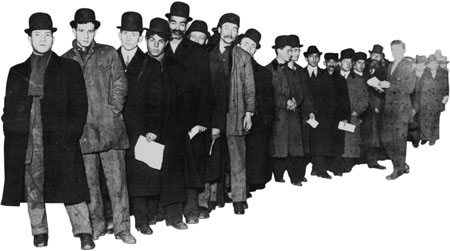
The hyphens. Americans with hyphenated origins, such as German-Americans, often found their allegiance questioned at the time of World War I…
The presence of so many Germans and their descendants assured that German foods and beverages, the German language, German-American clubs and music groups, even bilingual schools, all flourished in the United States prior to World War I. During the early years of the war, while the U.S. government remained on the sidelines of the fight, many German-Americans had felt comfortable offering their public support of the German war effort through speeches, published commentary, and fund-raising. Some ethnic groups, such as the Irish, even cheered for Germany because of their own dislike for Germany’s foe, England. Others supported their ancestral homelands.
Конец ознакомительного фрагмента.
Текст предоставлен ООО «ЛитРес».
Прочитайте эту книгу целиком, купив полную легальную версию на ЛитРес.
Безопасно оплатить книгу можно банковской картой Visa, MasterCard, Maestro, со счета мобильного телефона, с платежного терминала, в салоне МТС или Связной, через PayPal, WebMoney, Яндекс.Деньги, QIWI Кошелек, бонусными картами или другим удобным Вам способом.






